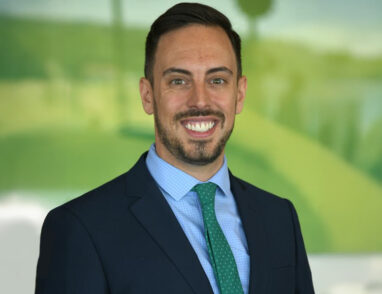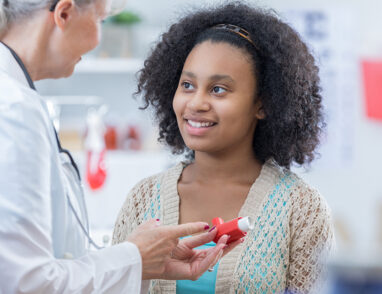Kidney Donor Search Reflects Urgency of NCQA’s Work
January 24, 2022 · Matt Brock
This will be a longer blog than usual because one of NCQA’s own—Vicki Beecher—is facing an all-too-common health challenge: She needs a kidney. The best way to get her one is to help shorten the transplant waiting list. We can all help by getting tested and considering donation. NCQA can also continue our work to prevent diabetes, kidney disease and desperate searches like the one Vicki faces now. We’ll tell you more about that after Vicki tells her story.
My story: Vicki Beecher, NCQA Assistant Director, Recognition Operations
It was July 2018. I felt fine, but noticed that my ankle was swollen. I propped up my foot to help the swelling go down. Around the same time, my blood pressure was uncontrolled. I’d been on BP medicine for more than 15 years, but had recently changed medicines. During a BP check, my doctor recommended a kidney ultrasound. Surprised, I asked why. “Because,” she said, as if I should have known, “you have chronic kidney disease, stage 3.” She told me that my kidney functions were below 50% and then said, “Let me give you some educational material.” She handed me a few sheets of paper. The title on the first page was I Have Hepatitis. I gasped. I had CKD and hepatitis? The doctor grabbed the papers back. “That’s for another patient.” Was that supposed to be the silver lining? After I left the office, I sat in my car and cried while Googling “CKD Stage 3.” Other than the swollen ankle, I felt fine. How could this be happening? It must be a mistake. I made an appointment with a nephrologist, who ran blood tests. He confirmed that my kidney functions were at 47% and scheduled me for a kidney biopsy. I was put on prednisone to stabilize my condition and reduce the protein in my urine. During the months I took prednisone, I gained 40 pounds. I couldn’t concentrate and my short-term memory was nonexistent. And my kidney functions continued to drop. I decided I needed a second opinion. I live about 2 hours from the Mayo Clinic in Jacksonville, Florida, so I went there. The Mayo doctor confirmed that my treatment plan was on the right track and advised me to continue seeing my local nephrologist until my functions dropped below 15%. That’s when it would be time to discuss a transplant. A year later I was back at the Mayo Clinic; my kidney functions were less than 15%. The second biopsy confirmed that I had focal segmental glomerulosclerosis (FSGS), a rare disease that causes permanent kidney damage. There is no identifiable cause.
I’m a fighter. I told myself that I’d do everything I could to survive. My resolve was quickly tested. In May, my doctor told me I would need dialysis—and soon. My kidney functions had fallen to 12%, the point where kidney failure would accelerate. I began dialysis in July. I chose peritoneal dialysis, which involved implanting a catheter in my stomach that hooks up to a dialysis machine. I turn it on before I go to bed and it runs while I sleep. I’ve changed my diet and my lifestyle to accommodate the new routine. Last September, I was added to the United Network for Organ Sharing (UNOS) waiting list—it could take 5 years to get a kidney. So I’m waiting as best as I can. But I’m not waiting patiently. I’ve shared my situation on social media, to seek a live donor and raise awareness of CKD. A friend is going through testing to see if she could be a match. |
Vicki’s story reminds how valuable NCQA’s work is in helping organizations measure and improve care for diabetes and advanced renal disease.
Our Quality Objective: Better Kidney Care
We’ve added a Kidney Health Evaluation for Patients with Diabetes measure to the Health Effectiveness Data and Information Set (HEDIS®). Our researchers have worked with others to reveal that chronic kidney disease goes vastly undiagnosed in Medicare beneficiaries. We’ve armed primary care clinicians with a toolkit that aims to improve and expedite diagnoses and care. We’ve also tried to raise awareness of CKD, especially among clinicians at the point of care. Check out this discussion on our podcast, Inside Health Care—two doctors talking about the challenges and potential victories against diabetes and kidney disease.
To learn more about kidney disease, go to the DOVE and National Kidney Foundation sites.
Sadly, Vicki’s experience is not unusual; there are thousands of people living with the assistance of dialysis, hoping for the best. Vicki wants a kidney. We want Vicki to get a kidney. And we also want to prevent similar stories. That’s why we do what we do.

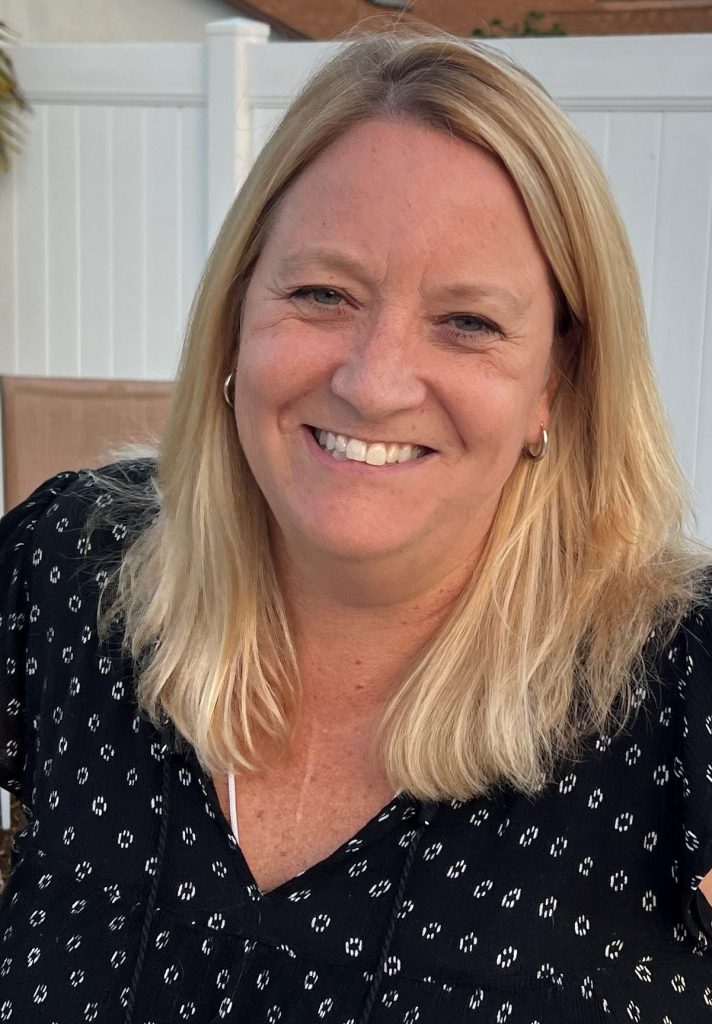
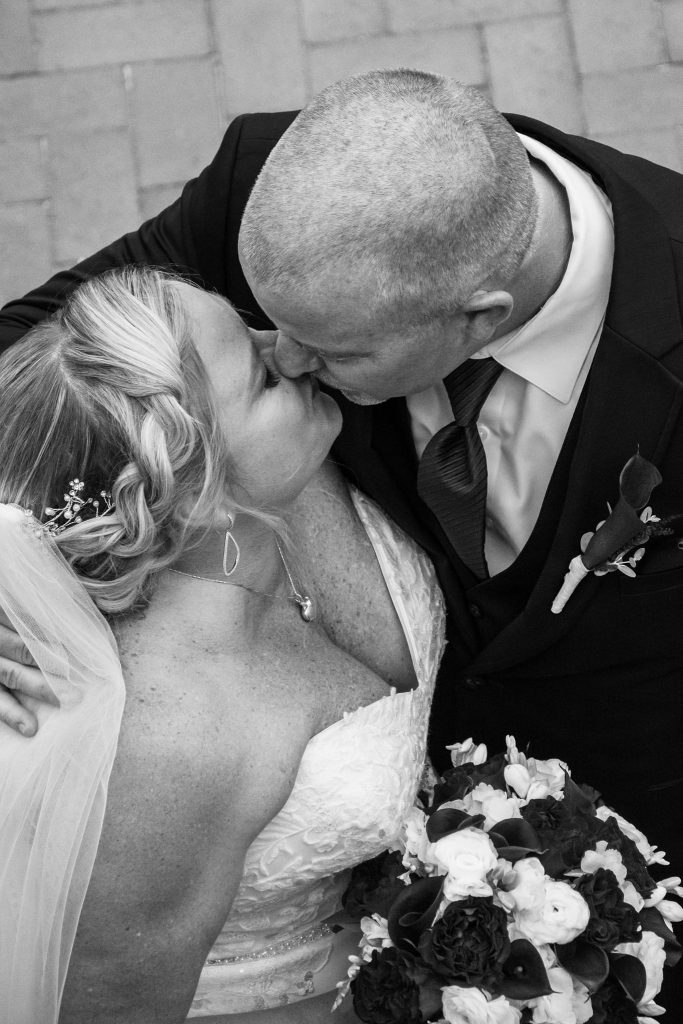 I got married in October 2020, and in January 2021 I returned to the Mayo Clinic for a transplant evaluation. My husband and I spent 4 days going from appointment to appointment. After we went home to Melbourne (Florida), there were tele-visits. The upshot was that I need a kidney.
I got married in October 2020, and in January 2021 I returned to the Mayo Clinic for a transplant evaluation. My husband and I spent 4 days going from appointment to appointment. After we went home to Melbourne (Florida), there were tele-visits. The upshot was that I need a kidney.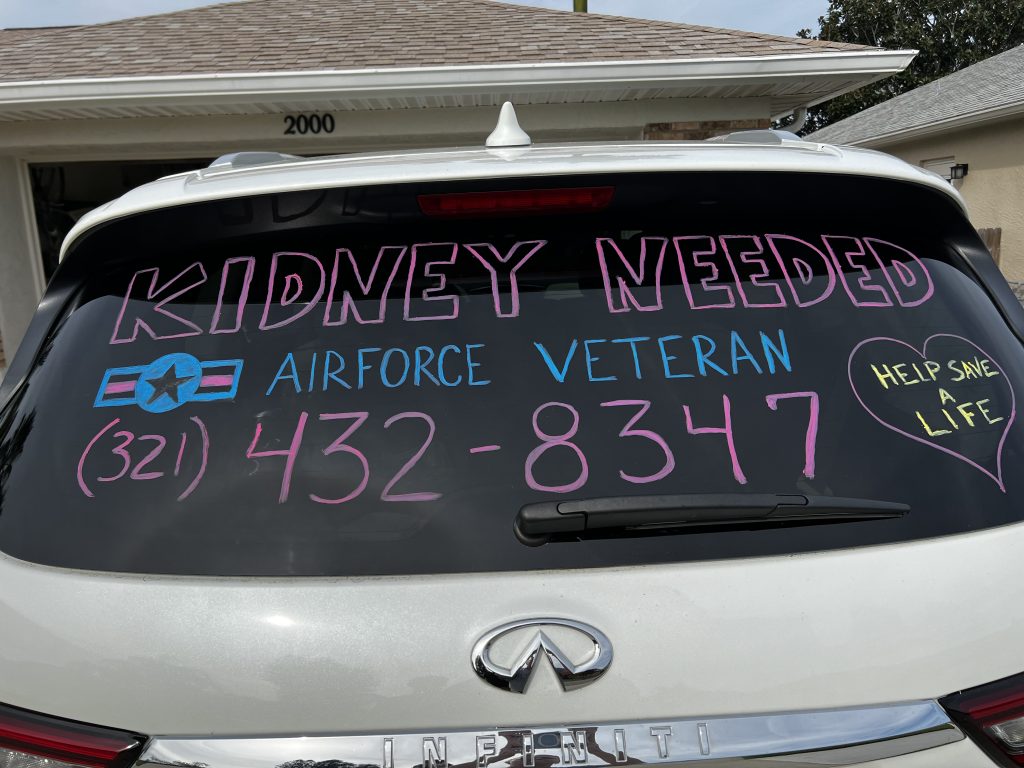 The rear windshield of my car says, “I need a kidney,” alongwith my contact information. I’m an Air Force veteran, so I’m working with an organization called
The rear windshield of my car says, “I need a kidney,” alongwith my contact information. I’m an Air Force veteran, so I’m working with an organization called 
